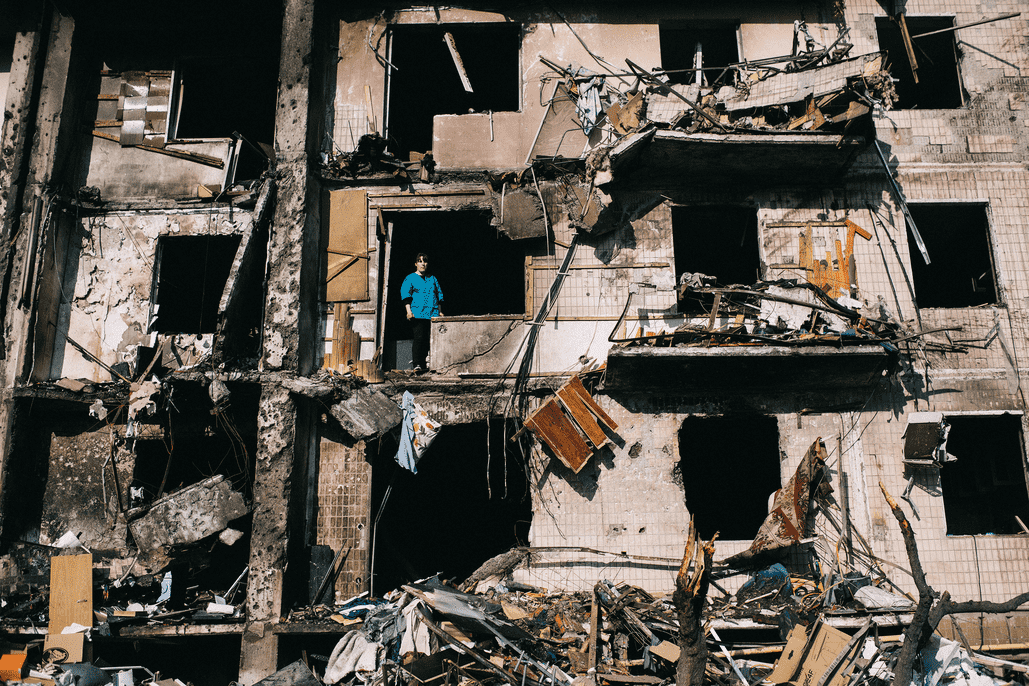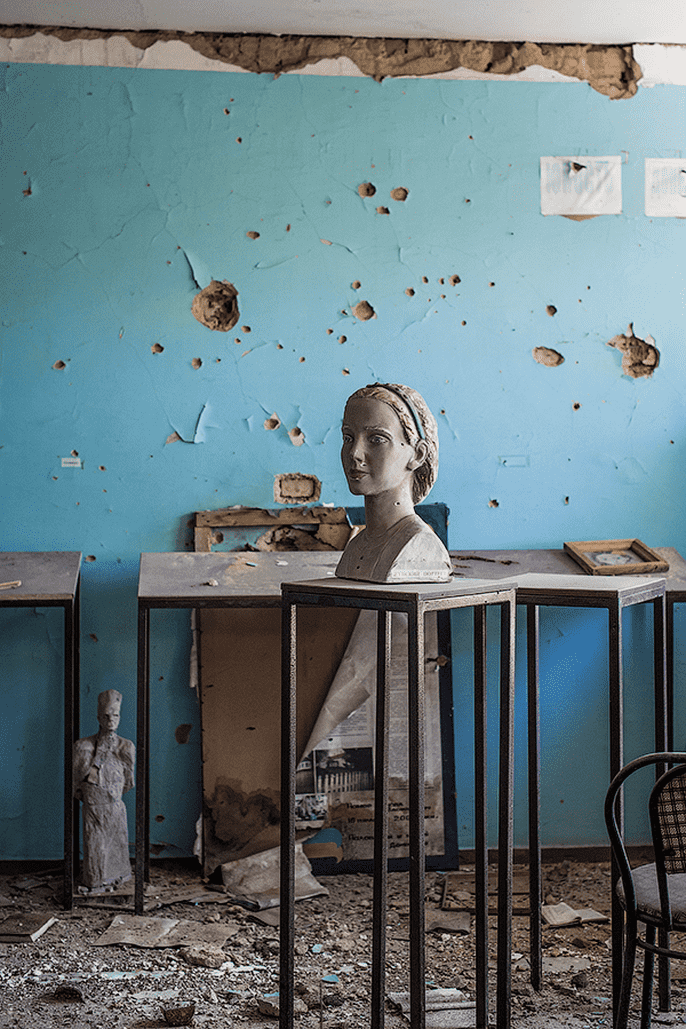As Ukraine looks toward the future, it is not clear whether tourism will help or hurt efforts to rebuild the country devastated by war.
Destroyed Apartment Building Kyiv, Ukraine. Maxim Dondyuk. CC BY 2.0
A fascination with the macabre is not a new phenomenon. For centuries human beings have been attracted to spectacles of death, suffering, and violence. In 1996 two Scottish academics, John Lennon and Malcolm Foley, coined the term “Dark Tourism'' in their book "Dark Tourism: The Attraction to Death and Disaster" to describe how some tourists are drawn to sites of catastrophe, tragedy and death, such as Chernobyl, Hiroshima or the wreckage of the Titanic. Whether these tours are purely voyeuristic or serve a purpose for those affected by the tragedy is a matter of contentious debate, and is always dependent on the nature of the tour.
In 2022, the organization Visit Ukraine proposed to host tours of cities in the Kyiv region that had been hit particularly hard during the country's invasion by Russia. The tour was meant to educate foreigners while raising funds for refugees. Mariana Oleskiv, the chair of the State Agency for Tourism Development of Ukraine, supported the proposal. However, despite its official support, the initiative faced backlash from critics who viewed it as a disrespectful intrusion into the lives of victims. As a result, Visit Ukraine and the State Agency for Tourism abandoned the idea. But is war tourism truly unethical?
Outskirts of Kyiv, Ukraine. Rodrigo Abd. CC BY 2.0
Tourism is an important economic asset for many countries, and the loss of this source of revenue due to foreign invasion can represent a significant economic blow. “While the right to tourism is forcibly taken away during conflicts, tourism is always a reminder of the importance of dialogue, peace, tolerance, and sustainable development among countries,” The World Committee on Tourism Ethics said in a statement on Ukraine issued in 2022.
According to UNESCO, since February 2022, the culture and tourism sectors have suffered losses of $19.6 billion due to the Russian invasion, while the total cost of the physical damage to these sectors is estimated to have reached nearly $3.5 billion as of March 12th, 2024. As Ukraine begins to think about rebuilding, the government believes tourism is essential for post-war recovery.
“Any money that people will spend in Ukraine will help the economy to recover,” Oleskiv said in 2024. “We need to create interest to Ukraine not just as people that you support and you feel sorry for—but also the country you want to support by visiting.” However, the chairwoman is emphatic that Ukraine is not interested in developing a culture of “dark tourism.” Ukrainians want to attract tourists who are interested in learning about the history of the war and the story of the Ukrainian people, not thrill-seekers or adrenaline junkies.
War in Ukraine. Tatyana Tkachuk. CC BY-SA 2.0
While the State Agency for Tourism Development is advising tourists to stay away until the war is over, warning that insurance may not cover risks in Ukraine, war tourism initiatives began to spring up in Kyiv as early as April of 2022, not long after Russian troops had retreated from the region. The tour guides responsible for these initiatives are aware of the precarious ethical ground upon which they tread. One Kyviv local, Svet Moiseev, saw war tourism as an opportunity to educate foreigners and raise money for the war effort. According to Moiseev, these tours are not very profitable for him, and he sees himself as a volunteer rather than a businessman, dedicated to informing the public and increasing support for the country abroad.
However, not all locals share Moiseev’s opinion, and some are uncomfortable with their lives being turned into a tourist attraction. Some locals have begun to put up signs warning tourists not to enter or photograph buildings damaged by the fighting. “Sometimes [the tour guides] bring tourists on purpose to make money from it. Not to talk about what happened,” says a resident of Hostomel, Serhii Ahiyev, in an interview with the Kyiv Independent. However, he is not entirely against the concept of war tourism and believes that it is important for foreigners to see firsthand the “terrible actions of the Russians.”
Tourists who decide to travel to Ukraine are still undertaking a significant risk. Visit Ukraine reports that, while the majority of the fighting is currently concentrated in the eastern and southern regions, the entire country is subjected to regular rocket attacks. If tourists install the Air Alarm app, it will send an air alert notification for their chosen region of Ukraine from the Civil Defense System. Visit Ukraine also advises tourists to observe local curfews, always keep documents and IDs on their person and avoid crowded areas. Their website provides further information and resources on how to stay safe in Ukraine, such as details about the rules, prohibitions and restrictions on visiting Ukraine during the war, the most convenient routes to and through Ukraine, travel recommendations and legal support.
The idea of war tourism in Ukraine remains a controversial subject, but organizations such as Visit Ukraine continue to plan to bring tourists to the country. “We are working to make sure that more people can see the things that the Russian army does to Ukrainian lands and people,” says Mykhailo Cherevyk, the project manager of Visit Ukraine. The organization has begun an initiative dubbed Donation Tours, and it wants prospective visitors to understand that this experience is different from war tourism or dark tourism. It is not just an opportunity to view firsthand the brutality of the invasion, but rather a way to “immerse yourself in the life of a country at war, and make a personal contribution not only to supporting the country but also to the common Victory.”
Rebecca Pitcairn
Rebecca studies Italian Language and Literature, Classical Civilizations, and English Writing at the University of Pittsburgh. She hopes to one day attain a PhD in Classical Archeology. She is passionate about feminism and climate justice. She enjoys reading, playing the lyre, and longboarding in her free time.




